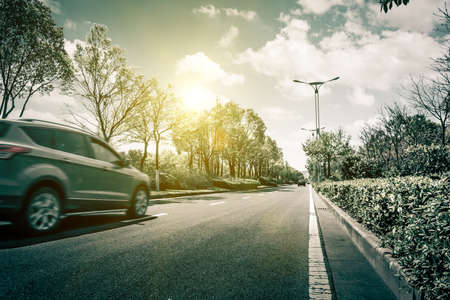Introduction to Sustainable Motorhoming
As the appeal of motorhoming continues to surge across the United Kingdom, so too does the awareness of its environmental footprint. UK travellers are increasingly embracing eco-friendly practices, seeking out caravan parks that prioritise sustainability and responsible resource management. This shift is driven not only by a desire to minimise ecological impact but also by a growing demand for greener alternatives that align with contemporary values. From reducing waste and conserving water to harnessing renewable energy, the modern British motorhomer expects facilities that support an environmentally conscious lifestyle. Caravan parks across the UK are responding, investing in sustainable infrastructure and offering innovative solutions to ensure the great outdoors remains unspoilt for generations to come.
Green Energy Solutions at UK Caravan Parks
Across the UK, caravan parks are leading the charge towards sustainability by embracing innovative green energy solutions. These eco-friendly motorhome facilities are not only reducing their carbon footprint but also providing tangible benefits to campers who value sustainable travel. The most common renewable energy initiatives found at these sites include solar panels, wind turbines, and eco-friendly hook-up points. Each of these technologies plays a vital role in powering modern caravan parks with minimal environmental impact.
Overview of Renewable Energy Initiatives
Solar panels are now a familiar sight on the roofs of reception buildings and utility blocks throughout the British countryside. By harnessing sunlight, these panels generate clean electricity for lighting, heating water, and even charging electric vehicles. Wind turbines, particularly in more exposed coastal or upland areas, supplement this power by converting breezes into usable energy, ensuring a steady supply regardless of weather fluctuations. Eco-friendly hook-ups, meanwhile, offer motorhome owners the chance to connect directly to renewable energy sources rather than relying on fossil fuel-driven grids.
Key Benefits for Environment and Campers
| Solution | Environmental Benefit | Camper Advantage |
|---|---|---|
| Solar Panels | Reduced greenhouse gas emissions; sustainable electricity generation | Access to clean power; reliable hot water and device charging |
| Wind Turbines | Zero-emission energy; efficient use of natural resources | Consistent power supply, especially in windy locations |
| Eco-Friendly Hook-Ups | Lowers reliance on fossil fuels; encourages greener habits | Direct access to renewable energy for motorhomes and appliances |
Paving the Way for Sustainable Touring
The integration of green energy solutions at caravan parks is more than just a marketing strategy—it represents a genuine commitment to environmental stewardship and resilience. By choosing parks that prioritise renewables, campers play an active role in supporting the UKs broader shift towards sustainability. As these technologies become standard across more sites, the future of British touring looks set to be cleaner, greener, and more self-sufficient than ever before.

3. Water Conservation and Waste Management
Efficient water management is at the core of sustainable motorhome facilities across UK caravan parks. With fresh water being a precious resource, park operators are implementing practical systems to minimise waste and encourage responsible use. Many sites now offer low-flow taps and showers, helping reduce consumption without compromising comfort. Greywater recycling is gaining traction, with dedicated stations designed for safe collection and treatment of used water from sinks and showers. This recycled water can then be utilised for non-potable purposes such as flushing toilets or irrigating green spaces, significantly lowering overall water demand.
Guidance on Efficient Water Use
Visitors are encouraged to adopt mindful habits, such as turning off taps while brushing teeth and only running dishwashers with full loads. Informational signage throughout parks reminds guests of the collective impact of their actions, fostering a culture of conservation that aligns with British values of stewardship and community responsibility.
Greywater Recycling Systems
Many modern UK caravan parks feature purpose-built greywater disposal points. These are engineered to prevent contamination and meet strict environmental standards. Park staff often provide guidance on correct usage, ensuring that only suitable detergents and soaps are used—avoiding harsh chemicals that could disrupt local ecosystems.
Chemical-Free Toilet Solutions
The shift towards chemical-free toilet options has taken hold in Britain, with composting and separating toilets now commonplace at eco-conscious sites. These systems break down waste naturally, reducing reliance on chemical additives and minimising pollution risks. For touring guests, portable chemical-free cassettes are widely available and supported by dedicated disposal facilities. Such innovations ensure that sustainable living doesn’t come at the expense of convenience or hygiene, keeping British caravan parks pristine for future generations.
Sustainable Building Materials and Infrastructure
Eco-friendly motorhome facilities across the UK are embracing sustainable construction techniques that champion both environmental responsibility and long-term durability. Caravan parks have moved beyond traditional materials, opting instead for innovative solutions that minimise their carbon footprint without compromising on comfort or functionality. The use of recycled materials, advanced insulation, and green roofing systems is becoming increasingly prevalent in new developments and refurbishments alike.
Recycled and Locally Sourced Materials
Many caravan parks now prioritise building with recycled timber, reclaimed bricks, and composite decking made from post-consumer plastics. This reduces waste and supports the UK’s circular economy. Local sourcing of stone, clay, and eco-cement not only cuts transportation emissions but also ensures facilities blend seamlessly into their regional landscapes.
Insulation for Energy Efficiency
Proper insulation is crucial for maintaining comfortable temperatures year-round while slashing energy consumption. Caravan park operators are fitting motorhome service blocks and communal areas with high-performance insulation made from sheep’s wool, recycled glass fibre, or hemp—materials celebrated for their sustainability credentials as well as their thermal properties.
Green Roofing Initiatives
Green roofing has seen a sharp uptake in the UK’s caravan sector. These living roofs—planted with sedum, wildflowers, or grasses—not only enhance biodiversity but also provide superior natural insulation and manage rainwater runoff. This approach helps facilities meet local planning requirements for sustainable drainage systems (SuDS) while creating habitats for pollinators.
Comparison of Sustainable Construction Features
| Feature | Sustainable Material/Method | Key Benefits |
|---|---|---|
| Building Frames | Recycled timber & steel | Reduces deforestation, lowers embodied carbon |
| Wall Insulation | Sheep’s wool / Hemp / Recycled glass fibre | Improves energy efficiency, utilises renewable resources |
| Roofing | Green/living roofs | Biodiversity boost, improved insulation, water management |
| Paving & Decking | Reclaimed bricks / Composite boards | Lowers landfill waste, durable surfaces for heavy use |
The adoption of these sustainable building practices demonstrates a clear commitment by UK caravan parks to reduce their environmental impact while offering modern conveniences. As the demand for eco-friendly holidays continues to grow among British travellers, these innovations set a new standard for responsible tourism infrastructure.
5. Low-Impact Travel and Transport
As the UK’s caravan parks embrace eco-friendly motorhome facilities, low-impact travel options are becoming a central focus. Many sites now feature dedicated EV charging points, allowing motorhome owners to recharge their electric vehicles with ease. This not only encourages the shift towards cleaner transport but also supports the UK’s broader goals of reducing emissions on the road.
Beyond vehicle charging, forward-thinking parks offer bike hire schemes—often stocked with both traditional cycles and e-bikes. These schemes make it easy for visitors to explore local countryside, villages, and attractions without relying on fossil fuels. Bike hire is typically integrated into site facilities, with secure storage and mapped cycling routes provided for added convenience.
Public transport links have also improved significantly around many popular caravan parks. Whether it’s a rural bus service or direct access to rail stations, these connections allow travellers to leave their vehicles behind and discover Britain sustainably. Some parks even provide shuttle buses to local hotspots or offer discounts on public transit tickets as part of their commitment to greener tourism.
For motorhomers keen on minimising their carbon footprint, combining EV charging, bike hire, and public transport creates a practical pathway to sustainable adventure. Adopting these low-impact travel solutions not only preserves the stunning British landscape but also sets a standard for responsible touring across the country.
6. Eco-Friendly Community Initiatives
UK caravan parks are evolving into more than just stopovers—they’re vibrant hubs for eco-conscious living, thanks to a surge in community-led green initiatives. Many parks now run their own sustainability programmes, from regular litter picks and recycling drives to energy-saving workshops that empower both staff and visitors. These efforts are often spearheaded by passionate park managers committed to reducing the environmental impact of motorhome tourism while fostering a sense of shared responsibility among guests.
Spotlight on Park-Run Programmes
Park-run programmes are at the heart of these eco-friendly transformations. Some parks have introduced communal composting schemes where guests can dispose of food waste responsibly, while others offer guided nature walks to raise awareness about local biodiversity. Water conservation is another priority, with rainwater harvesting systems and low-flow facilities becoming increasingly common. By participating in these activities, visitors not only support green practices but also gain practical skills for sustainable travel.
Local Produce Collaborations
Supporting local agriculture is another cornerstone of sustainable tourism at UK caravan sites. Many parks collaborate with nearby farms and producers to supply fresh, seasonal goods—think farm-fresh eggs, organic vegetables, and handmade jams. On-site farmers’ markets and pop-up stalls give guests direct access to these products, reducing food miles and supporting the regional economy. It’s a win-win: you get to taste authentic British fare while championing the local community.
Wildlife Conservation Efforts
Conserving Britain’s unique flora and fauna is taken seriously at leading caravan parks. Initiatives like wildflower meadow planting, bee-friendly gardens, and bird box installations are commonplace, helping to create safe habitats for native species. Educational boards and interactive sessions with local wildlife groups encourage guests to observe animals responsibly—an essential part of fostering respect for the natural world during your stay.
How Guests Can Get Involved
Getting stuck in is easier than you might think. Parks often organise volunteer days for tree planting or habitat restoration, and many welcome guest input on new sustainability ideas. Simple actions—like shopping local, following recycling guidelines, or joining an eco-tour—make a tangible difference. By embracing these opportunities, you’ll not only reduce your carbon footprint but also become an active participant in the UK’s thriving eco-tourism movement.
7. Practical Tips for Green Motorhoming in the UK
For those keen to champion sustainability on the road, adopting eco-friendly habits is as crucial as choosing the right caravan park. Here’s some hard-earned, no-nonsense advice for motorhomers who want to minimise their environmental impact while exploring the best of British landscapes.
Choose Certified Green Parks
Start by seeking out caravan parks with recognised eco-certifications such as the Green Tourism Award or David Bellamy Conservation Awards. These sites have proven commitments to sustainable practices—from renewable energy use to local wildlife protection—making your stay a force for good.
Conserve Water and Power
Water and electricity are precious commodities at any site. Stick to short showers, turn off taps properly, and use low-flow fixtures where possible. For power, opt for campsites with solar hook-ups or invest in portable solar panels for your motorhome. Switch off all lights and appliances when not in use—every little bit helps.
Respect Recycling Systems
Most reputable UK caravan parks provide clearly marked recycling points. Separate your waste diligently: plastics, glass, paper, and compostables should never be mixed with general rubbish. If facilities are lacking, store recyclables until you find appropriate bins—fly-tipping is never acceptable.
Support Local & Low-Impact Businesses
Buy produce from nearby farm shops or markets instead of large supermarkets; it reduces food miles and supports the rural economy. Many green parks also stock local goods—take advantage of these offerings rather than relying on imported supplies.
Minimise Chemical Use
Use only biodegradable toilet chemicals and cleaning products in your motorhome. Harsh chemicals can disrupt delicate sewage treatment systems common at eco-friendly sites and harm surrounding flora and fauna.
Tread Lightly Off-Pitch
Stick to designated paths and pitches to avoid damaging natural habitats. Avoid disturbing wildlife, especially during nesting or breeding seasons, and always take litter home if bins are full.
Lead by Example
Your actions set a benchmark for fellow travellers. Share tips with others, offer help when you see poor waste management, and praise parks doing things right—positive reinforcement encourages broader adoption of green practices across the UK’s motorhome community.


